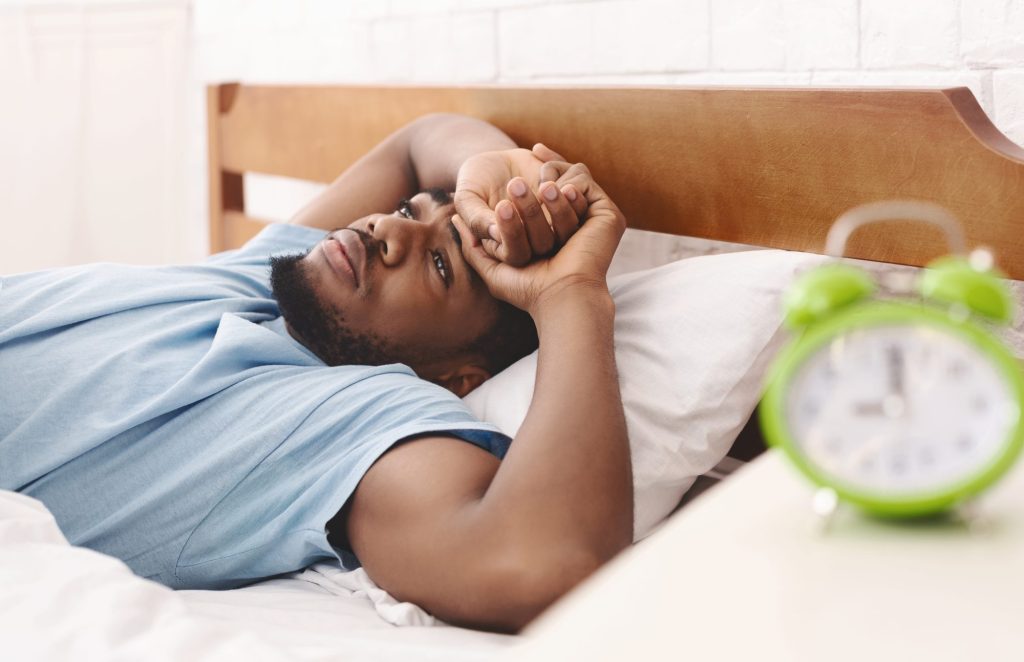Do you or someone you know snore loudly, gasp for air during sleep, or struggle with daytime fatigue? It could be caused by sleep apnea; a common condition where breathing stops and starts while a person sleeps. It affects millions of Americans and can lead to serious health problems if left untreated. In this blog, we will discuss what sleep apnea is, who is at risk, and what symptoms to look out for. We will also cover the different types of treatment options available, from lifestyle changes to continuous positive airway pressure (CPAP) machines, as well as how to live with sleep apnea to ensure a better quality of life. Join us as we unravel the mysteries of sleep apnea and help you sleep soundly again.
What Is Sleep Apnea?
Sleep apnea is a condition where breathing stops and starts during sleep. It is caused either by blockage of the airway (obstructive sleep apnea) or by the brain’s faulty control of breathing (central apnea). It can be linked to various underlying medical conditions such as type 2 diabetes, obesity, and high blood pressure. Obstructive sleep apnea is caused by the relaxation of the throat muscles, which restricts airflow. Lifestyle changes such as weight loss, smoking cessation, and reduction in consumption of alcohol may be recommended. Continuous positive airway pressure (CPAP) therapy and other surgical options are also available to provide relief to individuals suffering from sleep apnea.
Who Gets Sleep Apnea?
This common sleep disorder affects nearly 12 million people in the U.S. People of any age, gender, and size can suffer from sleep apnea, but it’s more prevalent in those who are overweight. Weight loss can drastically reduce the number of sleep apnea episodes. People with small airways or large tongues can be more likely to experience sleep apnea. There is also an increased risk of developing sleep apnea if you have certain medical conditions such as type 2 diabetes, obesity, and high blood pressure. People with a deviated septum or other nasal obstruction are also at a higher risk. It is necessary to be aware of the symptoms and take timely steps to manage the disorder for a better quality of life.
Symptoms of Sleep Apnea
Sleep apnea is a common sleep disorder that causes breathing to repeatedly stop and start during sleep. Its symptoms include excessive daytime sleepiness, frequent urination at night, high blood pressure, irritability, loss of energy and depression, loud and irregular snoring, morning headaches, poor concentration, sudden awakening with shortness of breath, and restless sleep. The severity of these symptoms can vary from person to person.
Treatment for sleep apnea typically starts with lifestyle changes such as weight loss and avoiding sleeping on the back. For mild cases, a mouthguard may help to reduce apnea episodes. More severe cases may require the use of a CPAP machine. It is crucial to seek medical advice if you are experiencing any of these symptoms because sleep apnea can be a serious condition if left untreated.
Diagnosis and Tests
Sleep apnea diagnosis usually requires a physical exam and a sleep study, as it is a disorder that occurs during sleep. Common symptoms, such as snoring, gasping for air, or choking, can indicate the existence of sleep apnea. A physical exam can check for physical attributes that can contribute to sleep apnea, such as a deviated septum or narrow airway.
Two tests are commonly used to diagnose sleep apnea: an overnight sleep study at a sleep center, and a home sleep apnea test. The overnight sleep study (polysomnogram) is considered the gold standard for diagnosing sleep apnea as it’s more comprehensive. On the other hand, the home sleep apnea test can provide a diagnosis of obstructive sleep apnea, but it cannot diagnose central sleep apnea. Regardless of the diagnostic method used, it’s important that a medical professional evaluates your condition and provide an individual report of your treatment plan.
Treatment Options
There are several treatment options available for Sleep Apnea, including Continuous Positive Airway Pressure (CPAP), a standard treatment for moderate to severe cases of Obstructive Sleep Apnea (OSA). For milder cases, lifestyle changes such as weight loss and avoiding sleeping on your back may help. Oral appliances such as mouthguards can be used to reposition the jaw, relieving OSA.
In some cases, surgery may be required to correct upper airway anatomic problems causing an obstruction. Additionally, treatments such as nasal resistors and oropharyngeal exercises may be used to alleviate symptoms.
Sleep apnea is a disorder that disrupts the flow of air while you sleep. When the muscles in your throat collapse, your breathing may become shallow, or even stop for seconds or minutes at a time. Sleep apnea is often associated with excessive fatigue during the day and can lead to serious health risks such as obesity, high blood pressure, and type 2 diabetes.
These changes can help maintain unobstructed breathing. For overweight individuals, weight loss may help reduce apnea episodes, as tongue fat is known to decrease. Sleep disorder specialists can devise the best treatment plan for the condition determined. Specialized equipment such as a Continuous Positive Airflow Pressure (CPAP) Machine may be used to ensure unobstructed breathing. It’s best to seek medical guidance to get the appropriate treatment plan to manage this disorder.
Conclusion
Sleep apnea is a serious sleep disorder that can lead to various health issues. It occurs when a person’s breathing is disrupted during sleep. Anyone can get sleep apnea, but some factors increase the risk, such as obesity, older age, smoking, and alcohol consumption. If left untreated, it can lead to high blood pressure, diabetes, and other health problems. Treatment options for sleep apnea include lifestyle changes, such as losing weight and quitting smoking, using CPAP machines, and undergoing surgery. It’s essential to know the symptoms of sleep apnea and seek medical help if you suspect you or a loved one may have it. Schedule an appointment today with South Dayton Smiles to learn more about sleep apnea, and take the first step towards better sleep and overall health.

 Meet Dr. Botti
Meet Dr. Botti Meet Dr. Scranton
Meet Dr. Scranton
 Patient Forms
Patient Forms Online Bill Pay
Online Bill Pay Benefit Program
Benefit Program Your First Visit
Your First Visit